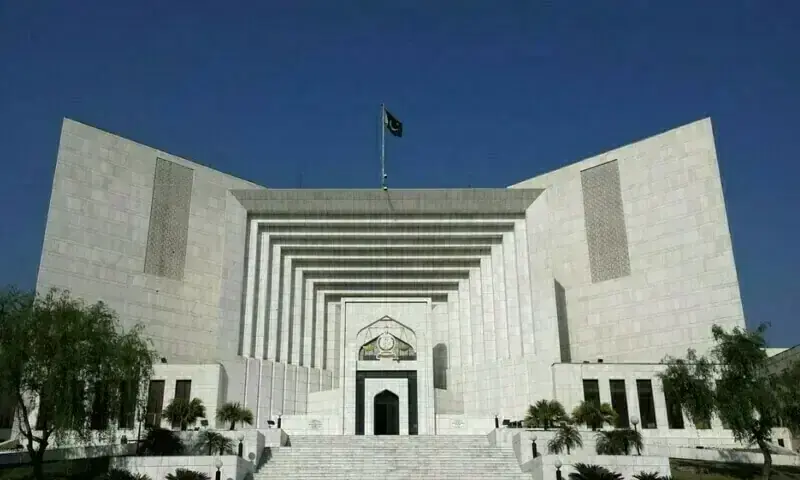

Four Islamabad High Court (IHC) judges have decided to approach the Supreme Court against the recently introduced 27th Amendment and a draft petition in this regard, invoking the original jurisdiction of the top court under Article 184(3), has already been prepared.
According to the draft petition prepared and forwarded to the Supreme Court, the petitioners include Justice Mohsin Akhtar Kayani, Justice Babar Sattar, Justice Sardar Ejaz Ishaq Khan and Justice Saman Rifat Imtiaz. All four judges have signed the petition, which is yet to be formally lodged at the apex court.
Sources said that the petition was not entertained by the apex court registry branch since Article 184(3), which used to be an inherent power of the SC to enforce fundamental rights, has been omitted from the Constitution. They added that the petitioner judges also did not visit the SC to either file the petition or undergo biometric verification.
They said the judges decided to move the apex court after months of raising concerns over what they described as an “incremental but systematic dismantling” of judicial independence, beginning with the 26th Amendment and culminating in the latest constitutional changes.
The petition argued that the new amendment violated Articles 9, 10A and 25 of the Constitution, which guarantee the rights to due process, fair trial and equal protection, by subordinating the judiciary to the executive. It also said the tweaks restructured the constitutional scheme of separation of powers and altered the terms of service of sitting judges in violation of the Constitution.
One of the central targets of the petition was the Federal Constitutional Court (FCC), a new judicial forum with exclusive jurisdiction over constitutional matters.
The judges argued that the FCC chief justice was appointed by the president solely on the advice of the prime minister, without any consultation with the judiciary, in violation of established principles reiterated in landmark judgements such as Al-Jehad Trust and Sharaf Faridi.
They also challenged the appointment of the first batch of the FCC judges, asserting that their selection was predetermined and “handpicked” by the executive, even before the amendment was enacted.
According to the petition, the structure and powers of the new court — which binds all other courts but is not bound by precedent itself — create a parallel judicial system unprecedented in common-law jurisdictions. It warned that the FCC’s unlimited discretion to withdraw cases from high courts raised the risk of executive control over constitutional adjudication.
In addition, the petition challenges the altered composition of the Judicial Commission of Pakistan (JCP) and the Supreme Judicial Council (SJC), noting that both bodies now contain a majority of non-judicial members or judges appointed under the contested framework.
The petitioners argued that the appointment mechanism had been reduced to “an election by an executive-dominated electoral college”, replacing merit-based selection with political influence.
As they declined to accept the application, court officials reportedly communicated to the petitioners that the petition may not fall within the Supreme Court’s jurisdiction because it relates to a constitutional amendment.
The branch advised that the matter might require review under procedures dealing specifically with challenges to constitutional amendments.
However, the petitioners relayed that only the SC — not the newly formed FCC — can decide the legality of the amendment because the FCC’s very existence depends on the amendment being upheld.
As per the petition, a forum created by the disputed amendment cannot “judge its own birth”, and the Supreme Court’s inherent power to interpret the Constitution cannot be ousted.











